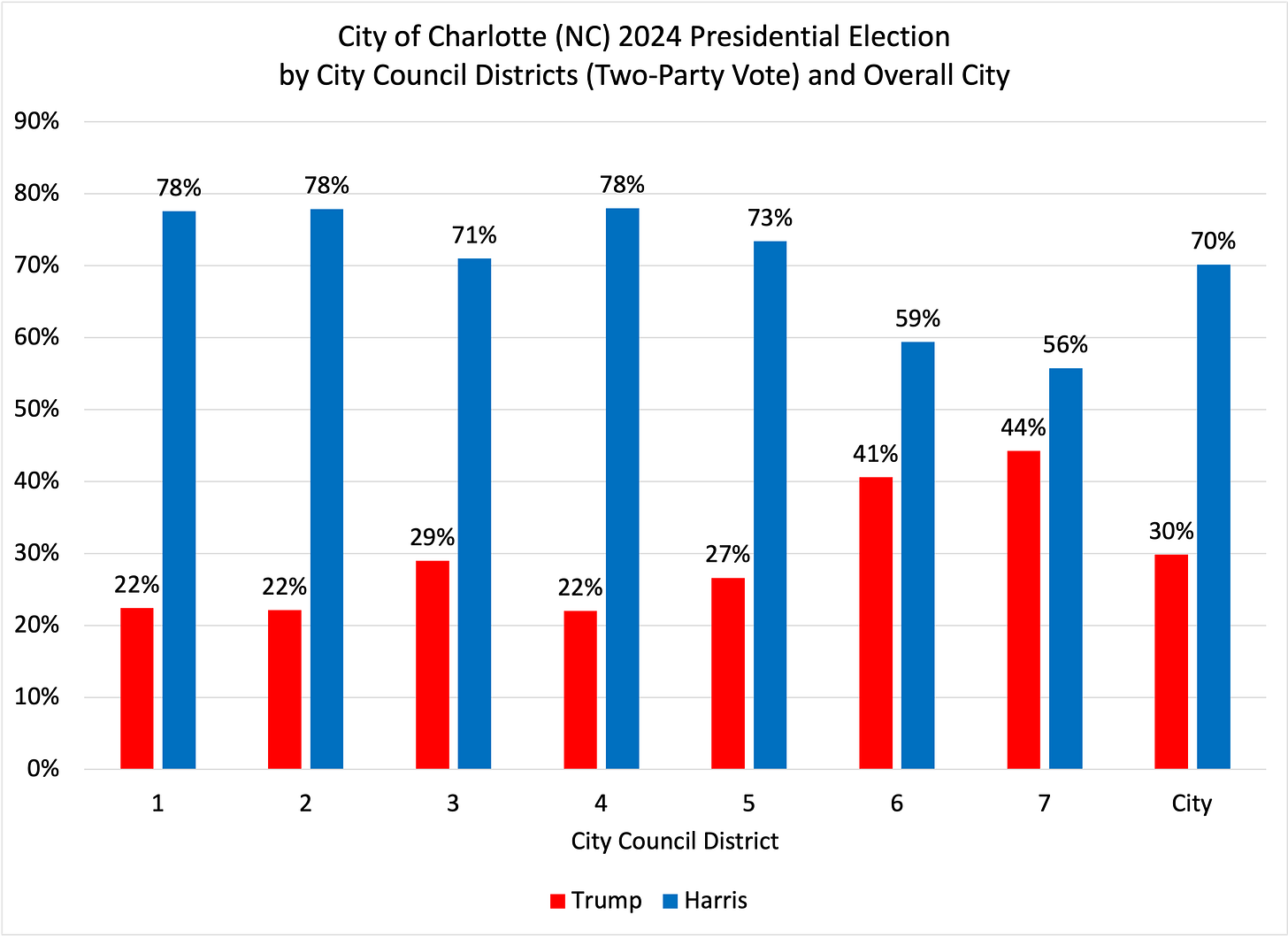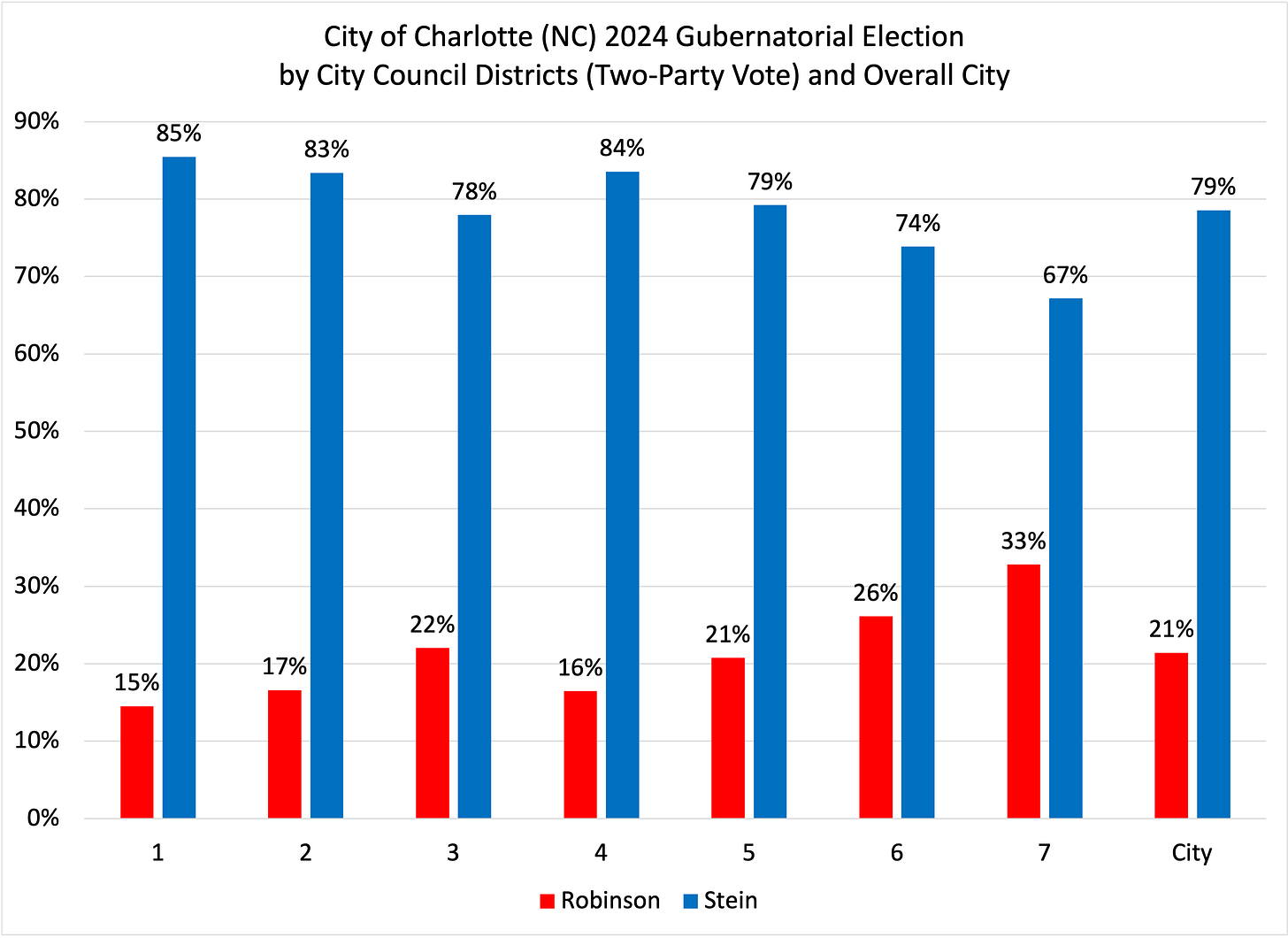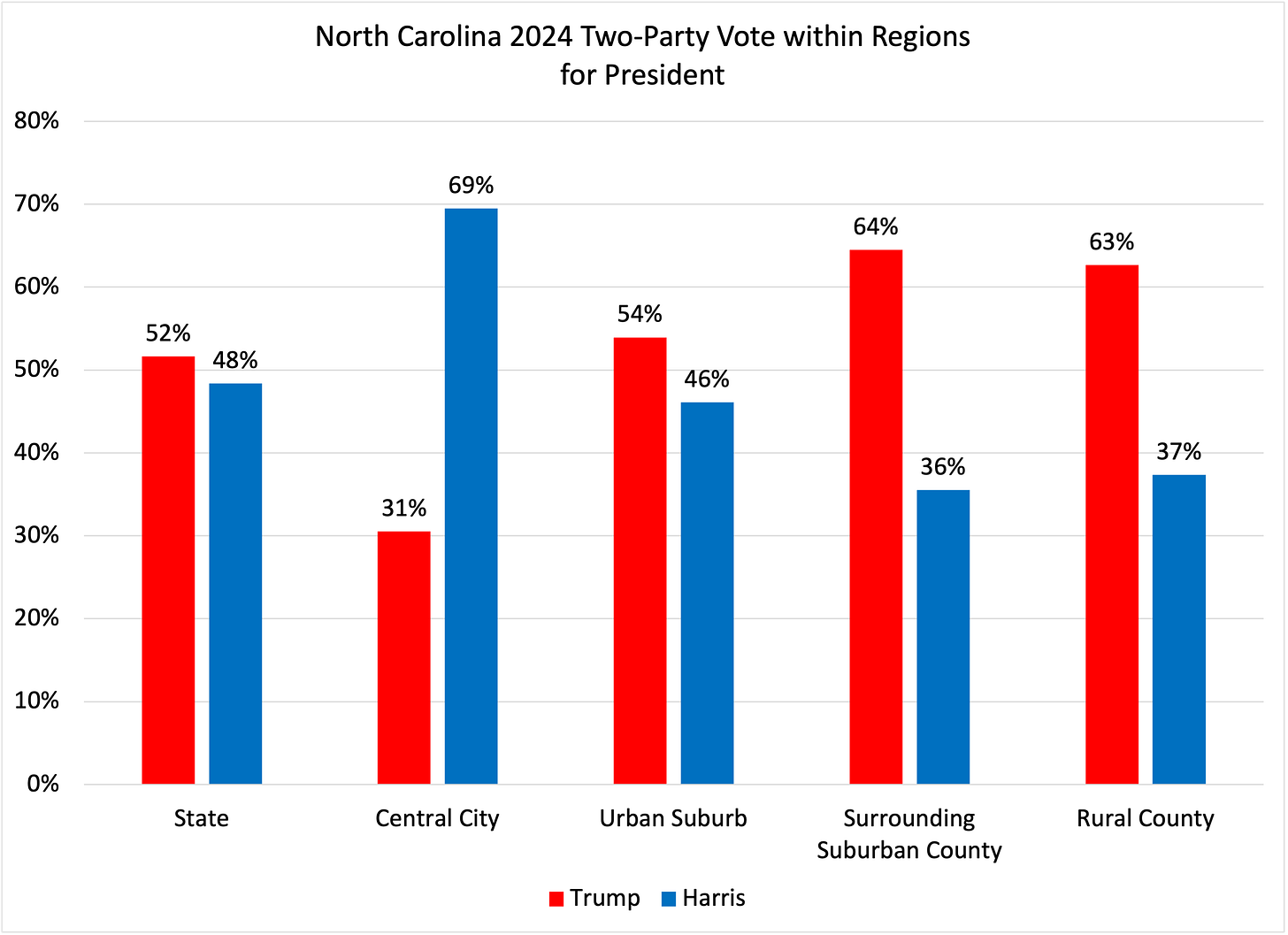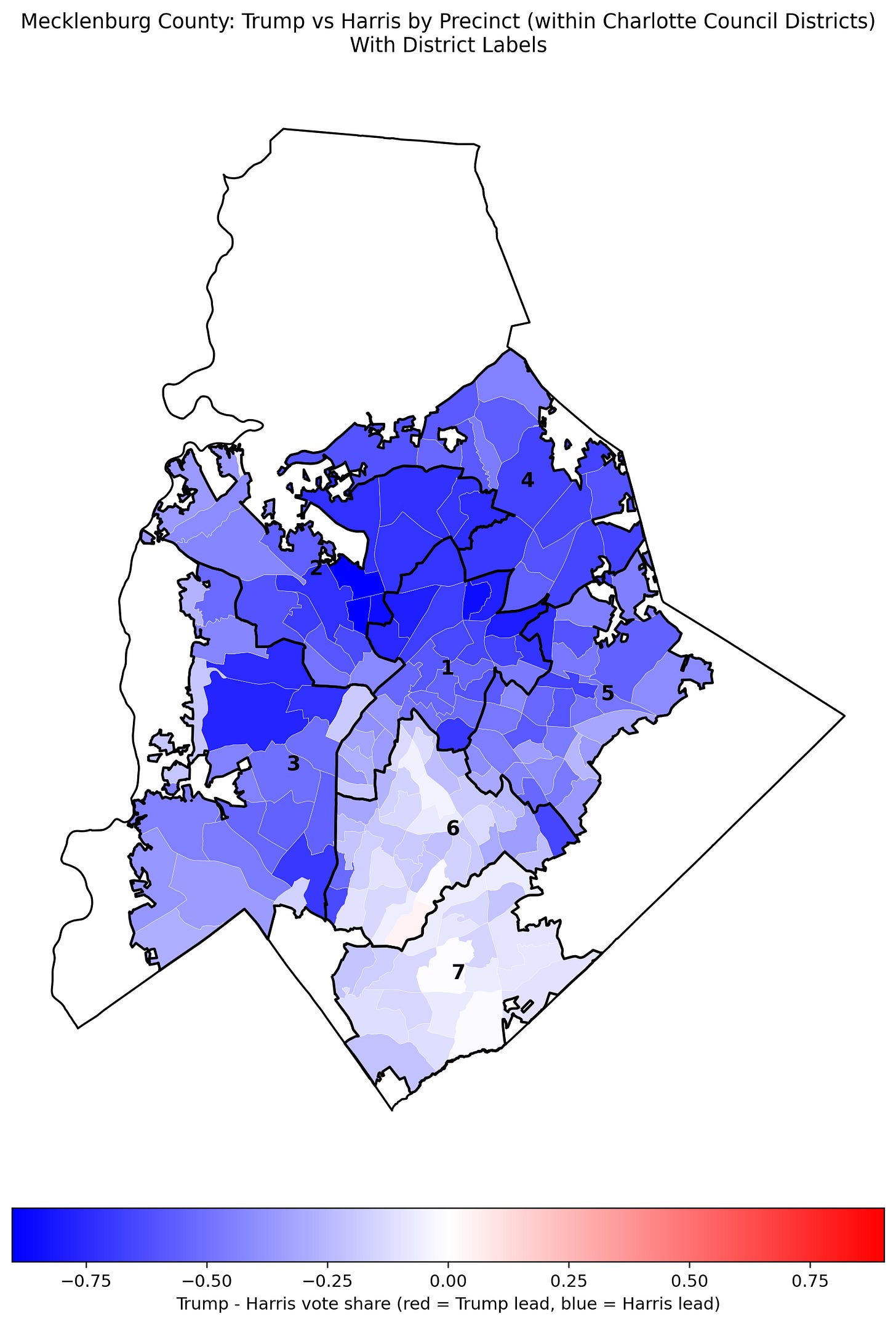By Michael Bitzer
With all the national attention Virginia, New Jersey, and New York City are getting for their campaigns and elections, this is just a gentle reminder that in 88 counties across the Old North State, elections in 447 municipalities are happening as well.
In the largest metro area to me, Charlotte has a slate of mayoral and city council contests, along with what appears to be a hotly (but could be decided overwhelmingly) sales tax referendum on the ballot.
In thinking about the significant shift of major metropolitan areas in recent decades, Charlotte gives us a prime example of what Democratic dominance looks like at the electoral level.
In taking the Mecklenburg County precincts that make up the seven Charlotte city council districts and analyzing them based on the 2024 presidential and gubernatorial two-party vote, one can see this dominance in full:
I would caution folks against using the governor’s race, simply because ‘candidates matter’ and the Republican candidacy was flawed.
But Charlotte’s 70-30 ratio puts the Queen City very much in the middle when you combine all the major urban areas of North Carolina and their two-party votes together, in comparison to a highly competitive state and more lopsided Republican dominance in two of the three other regions:
When looking at the election results by precincts within each of the seven city council districts, you can clearly see which two are potentially the most competitive:
District 6 and 7 are the last remnants of Republicanism in the city, with an open-seat election in the 6th and an uncontested Republican incumbent in the 7th. The 6th District has a first-time Democratic candidate running against the spouse of the former Republican incumbent, and should be the one to watch on Tuesday evening.
Those of us who study electoral behavior and voting patterns know that it’s no longer the case that “all politics is local” but “all politics is nationalized.” And with the 6th being close to a 60-40 Democratic presidential result from just one year ago, the headwinds against Republicans in that district are growing stronger and stronger each cycle.
One aspect to watch: how calcified the electorate has become, and is this district willing to buck its trends towards the Democrats, or will the nationalization of Charlotte’s politics simply mean that the last bastion of Republicanism on city council is the 7th District?
As a reminder: two years ago, the Republican candidate won the 6th district by only 314 votes.
Dr. Michael Bitzer is a professor of politics & history and director of the Center for North Carolina Politics & Public Service at Catawba College.




